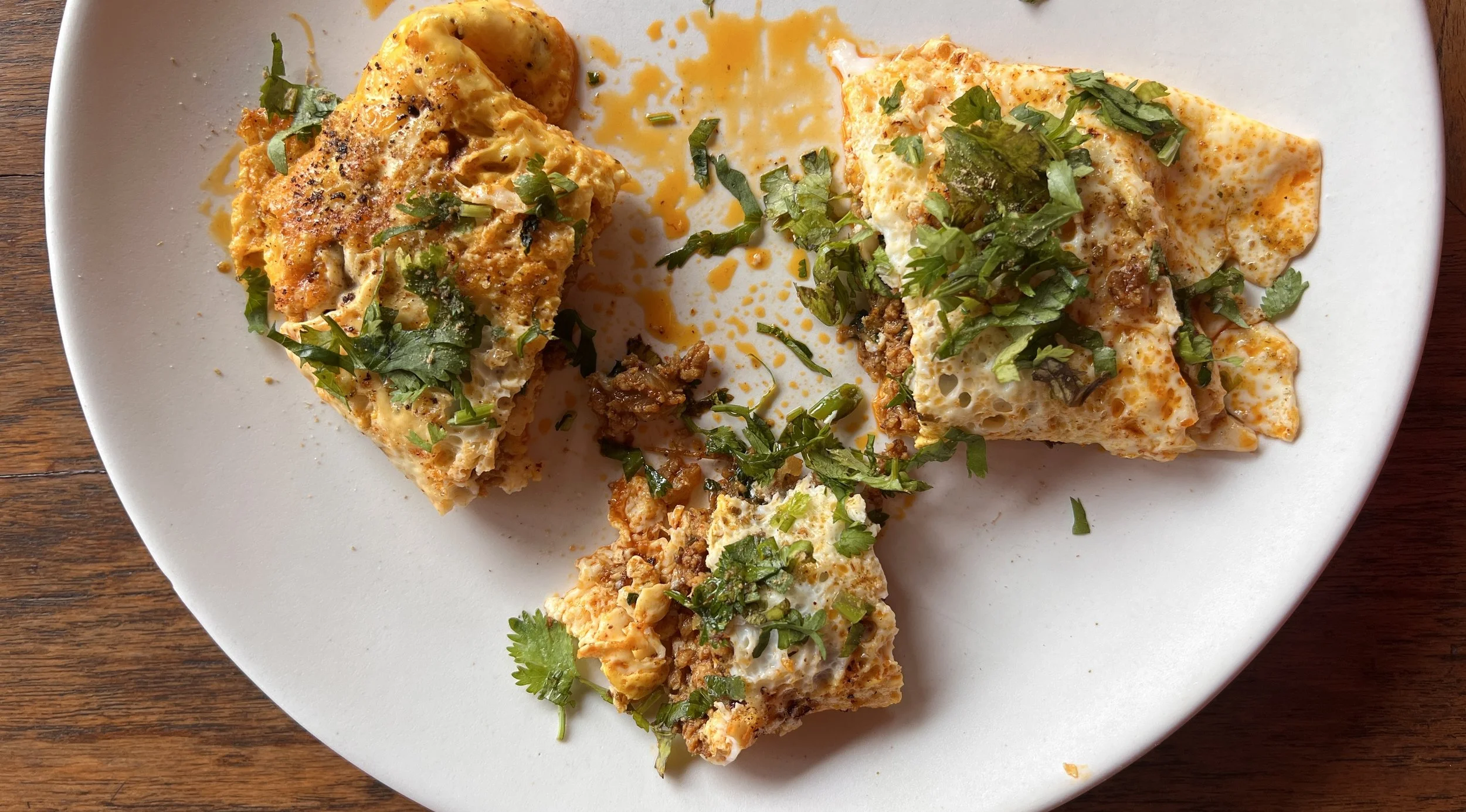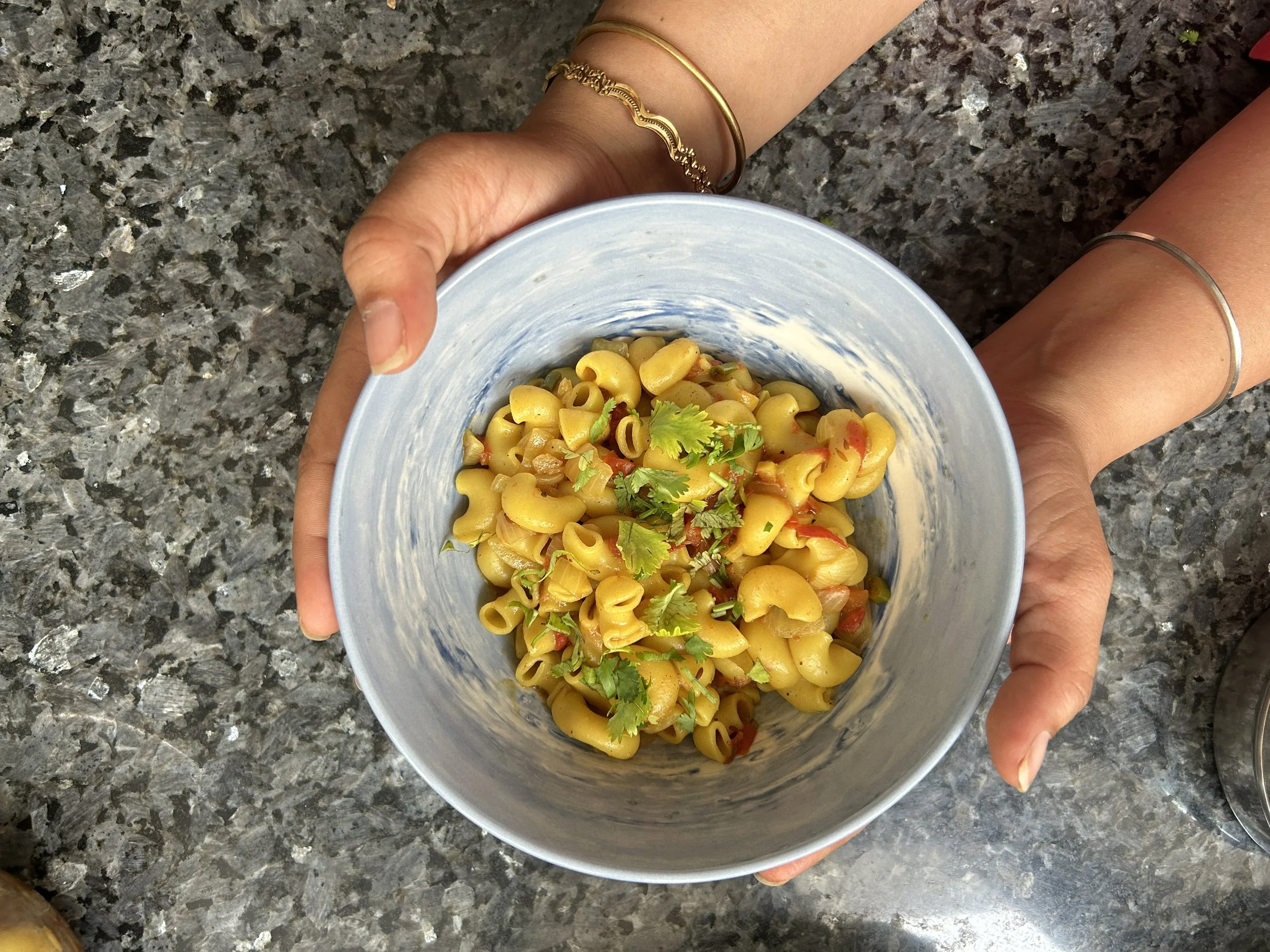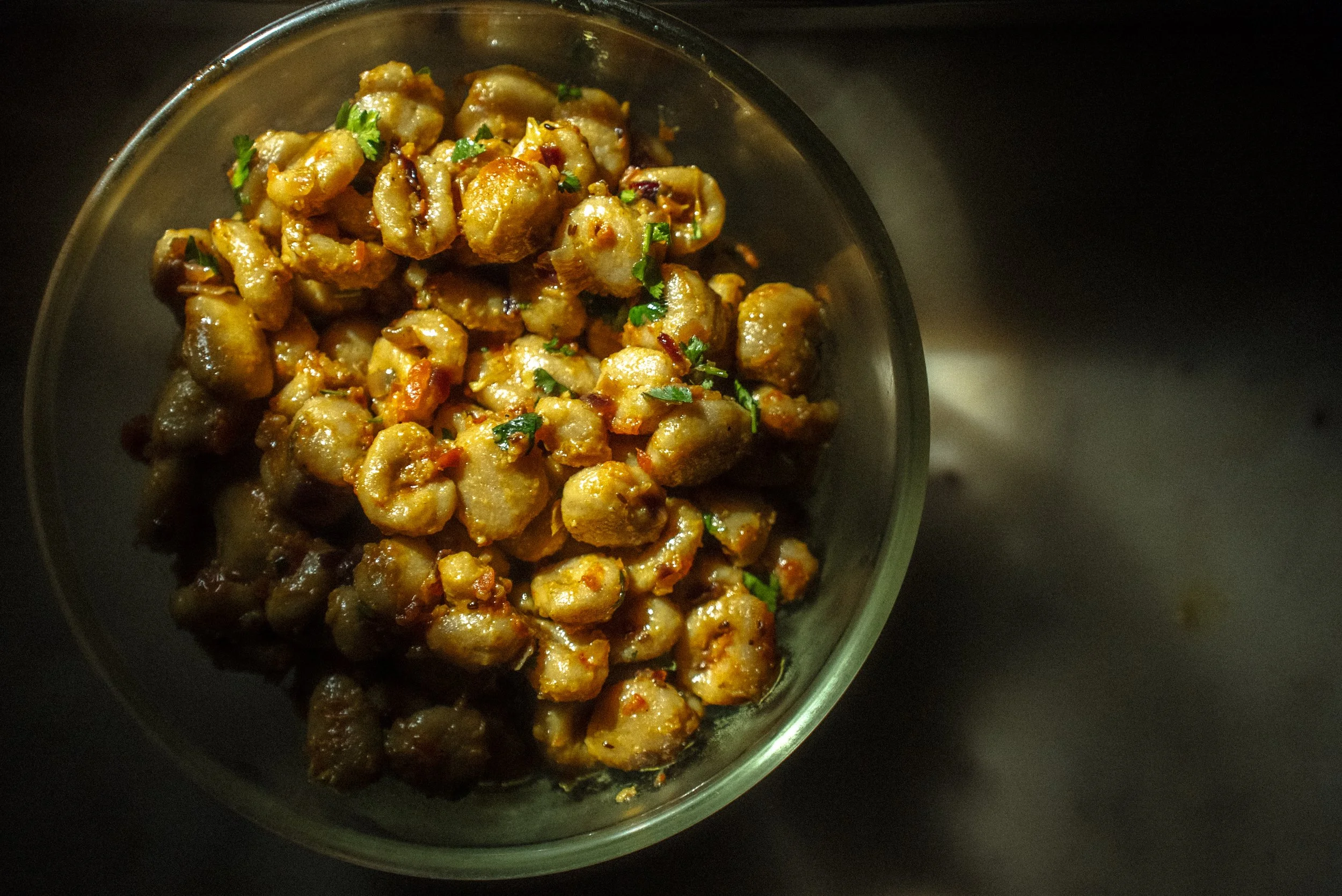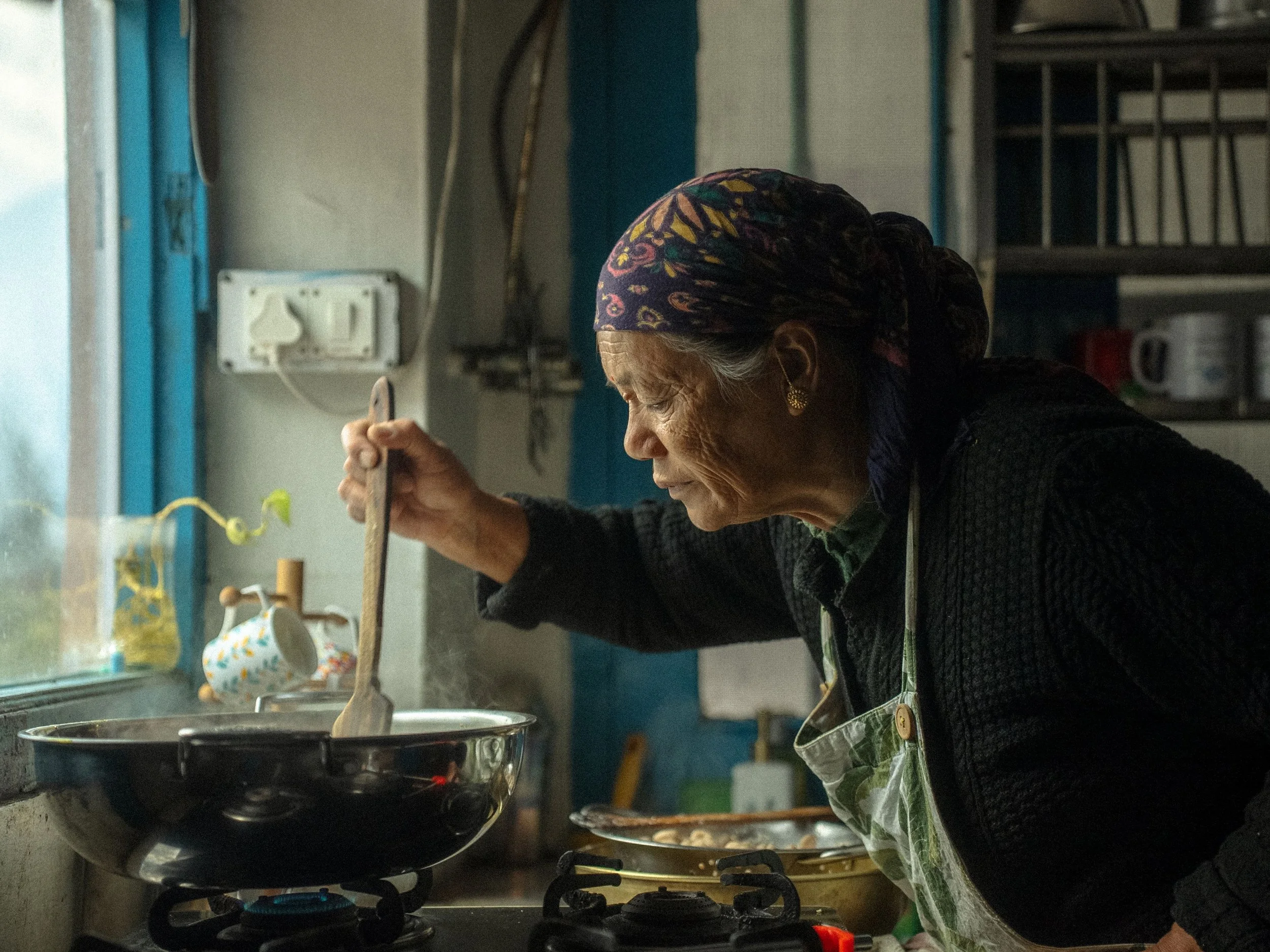Why Women's Labour in the Kitchen is Really 'Nothing Much'

If the market economy devalues the kitchen, culinary knowledge will not find guardians or custodians in the next generation. Will the kitchens always lose to the market? What happens to the generational knowledge of women? Will women always have to choose the market over the kitchen to prove their worth?
Nourishment has long been cast as a feminine duty — a role assigned to women for generations, with the kitchen as their designated workplace. Managing a kitchen has been their invisible contribution to the economy, labour that remains unaccounted for, and often, inescapable. Kitchens lie at the intersection of nutrition, caste, and gender, functioning as the sanctum sanctorum of the home. It is the operative core of the house, where they hold power and authority. However, food and womanhood are traditionally not only limited to the time of meals and jurisdiction of the kitchen — it spills to the afternoon lulls and courtyards and undefined house spaces where women roll laddoos, a commodity that could be tagged ‘nutraceutical’ today. Both the market and science have long undervalued the knowledge held by the woman at home.
Laddoos have been neatly stacked on the boundary of the kitchen and market for years. There is a laddoo for every occasion — a laddoo for pregnant women, a laddoo for knee pain, a laddoo for diwali pooja, a laddoo for winter snacking. The more celebratory laddoos were showcased in the glass counters at store fronts. Women's laddoos remain mystical; like all ‘maa ke haath ka khaana’, they assume economic importance only in a halwai's quarters. My arthritis-ridden aunt still makes ‘unscientific laddoos’ for her soon-to-be-doctor daughter notwithstanding the stiffness in her hands. Her daughter will not roll laddoos. Most of us will never roll laddoos. The market will make laddoos; mothers will not. In a world that values women only in the market, women will be in the market. Women will not work at home, they will go to work from home.
Work and labour have coloured our imagination. There is hardly anything that is not ‘work’ anymore. Parenthood is referred to as a job; people are invited to ‘work on’ their relationships; those suffering from an untoward event are asked to undertake ‘grief work’; and physical exercise has become ‘working out’. Is it because work escapes any definition, or because we want to provide time and importance to things that are effortful but are not valued, because they are immeasurable in economic terms. This is what must have pushed Silvia Fedirici to proclaim in her revolutionary pamphlet Wages Against Housework, “They say it is love. We say it is unwaged work.”
Illustration by Aakansha Menon
There are many ways in which philosophers have thought about work and the incentives that inspire it. Lewis Hyde defines work as an intended activity accomplished through will. Labour, he thinks, can be intended but only to the extent of laying the groundwork; or of not doing things that would ostensibly prevent the labour. Raimon Pannikar states that labour is not a creative activity and actually degrades man. The worker should be given back their dignity along with the fruits of their labour. But the fruit of ‘work’ and the product of ‘labour’ are not the same. It is not production-line activity (or sitting before a laptop) that brings about the well-being necessary for a human life to be lived in dignity — but the activity of ‘making’ of the poietic Man.
Marx was already beginning to see the alienation from the creative activity, precisely through salaried labour. Salary is like a bread crumb that is thrown to the labourer in the interest of the Capital. The fruit of the work is his happiness, the satisfaction that comes from being a builder of reality, a co-creator of life, the awareness that one is realising one's true self.
The idea of salaried work is losing its charm and is being recognised as a set of fictional processes than a productive activity. David Graeber lamented the obsession with salary-generating work saying, “We have become a civilisation based on work — not even ‘productive work’ but work as an end and meaning in itself.” It brings into question the promise of feminist emancipation that was supposed to lie outside the locus of home, within the boundaries of formalised work.
British Feminist, Rosie Boycott, launched the feminist magazine Spare Rib advocating that women should not waste their time cooking. She wrote that cooking was wholly frivolous and politically dangerous. Raising women's self-esteem to liberate them from the confines of the home was one of feminism's earliest and most vital tasks. Looking back, she now understands that the struggle of early feminists to free women from the sheer drudgery of housework was a small link in the chain in the health epidemic brought on by commercial food.
Women’s labour, especially in kitchens, is often masked as ‘nothing much’.
There is another intricate set of issues here: Are women in societies with sexist norms pushed toward housework, or is housework considered low in prestige because women tend to perform them? Or both? In the context of India, housework was easily delegated not to machines or supermarkets but to other poor women (the designated ‘cheap, informal labour’). Could there be a different politics around it? Could women resacralize housework? Could the home be made a better workplace for women who work there for salary and women who work for nourishing their family?
Architect Anna Puigjaner imagines kitchen-less houses where all domestic chores would be outsourced. Homes without kitchens have been tagged as ‘architecture of resistance’. Kitchenless homes in South Korea are referred to as Goshiwon. The nutritionists, on the other hand, advise eating more and more home cooked food to be able to control your ingredients.
In Indian popular culture, the feminist narrative is similarly tangled. For example, the matriarch in Karan Johar's Rocky aur Raani ki Prem Kahani is both a skilful laddoo-maker and a shrewd businesswoman. But that does not stop her from gatekeeping the market for her male heirs. In the films like Mrs and The Great Indian Kitchen, the drudgery of women’s lives in the kitchen can be resolved by stepping into the market and hiring other women to work for them.
My mother has often described her work as “nothing much“. Women’s labour often masked in ‘nothing muchness’ is a striking metaphor. Our mothers and foremothers, keeping our houses and nourishing our market-serving bodies, often determine their relentless work as ‘nothing’. Margaret Agwu writes that cooking is “not a big deal” to many men because they don’t have to do it. It was moving away from home to reclaim her love for food and trying out new recipes that made her enjoy cooking. But she is aware that even basic things like what to eat and when to eat is a luxury not afforded to many married women.
In the fragmented society we live in today, I often look back to my childhood. Preparing snacks around festivals was a time my brother and I looked forward to. We sat around large vessels of batter and rolled laddoos under the supervision of my mother. It was beyond work; it was really the joy of making something with your own hands. There is plenty of research to show the positive effects of hand-done activities on our mental health. But those motor activities are now best limited to the curricula of international board schools. Now I frequent exhibitions where these laddoos are sold for 4-5 times the price my mother could make it for. I often find recipes of energy balls while scrolling aimlessly on instagram.
Where does this leave us? The market devalues the kitchen and dismisses it for more masculine pursuits of life. The generations of laddoo-making skills and knowledge will not find guardians or custodians in the next generation. Does it mean that kitchens will always lose to the market? What does it mean for the generational knowledge of women? And will women always have to choose the market over the kitchen to prove their worth?
Where we come from shapes us. It is the time for us to examine the capitalist nature of modern discourses on women's emancipation, which devalue the kitchen, desacralize the home, and dismiss nourishment in favour of traditionally masculine pursuits. We can find power and purpose in our homes, which yet cannot be outsourced to AI.
Shraddha Upadhyay is a writer and researcher based in Delhi. Her writings can be read here.
ALSO ON GOYA











